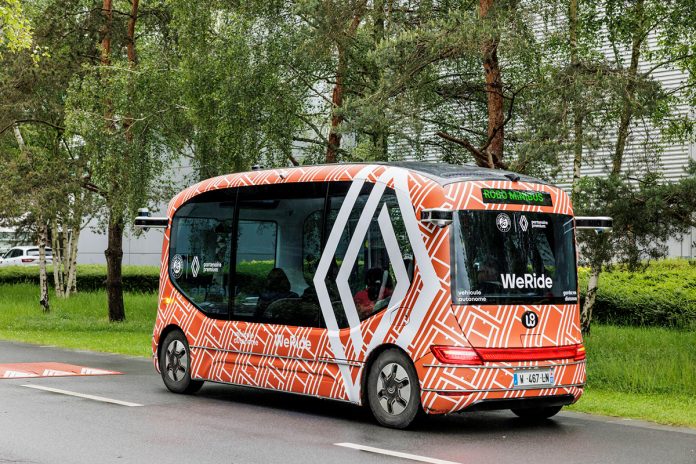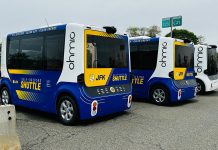The Renault Group has detailed its future ADAS and autonomy plans, which includes a new partnership with WeRide to launch a Level 4 autonomous shuttle pilot in Paris.
Across its portfolio of passenger vehicles, the multinational OEM highlighted that it will continue to focus on delivering driving assistance functions, such as contextual cruise control or lane keeping assist, or automatic overtaking. At the same time, it also underlined its intent to become a key player in sustainable, autonomous, mobility in the field of public transportation.
In the case of individual vehicles, Renault Group is concentrating its efforts on L2 and L2+ autonomy, through driving assist features that enhance the safety of its vehicles. When using these features, the driver remains responsible for driving.
Within autonomous public transportation, the Group has been conducting trials for several years to define the best response to the needs of local authorities – such as its ‘Mach 2 project’ to integrate a fleet of automated electric minibuses into the public transportation network of Chateauroux Metropole in France. Through these trials, Renault Group is ultimately looking to launch an autonomous electric miniBus platform based on the New Renault Master, that can integrate automation solutions from partners such as EasyMile, Milla and WeRide.
The Group’s latest trial conducted as part of this strategy is an L4 pilot with WeRide. With the Chinese AV technology company, it plans to demonstrate an autonomous public transportation service during the Roland-Garros 2024 tennis tournament. From 11:00 AM to 7:00 PM between May 26 and June 9, the pilot service will transport passengers from the nearby P2 car park (located on the outskirts of the Bois-de-Boulogne) to the Roland-Garros stadium. At the end of the matches, the autonomous minibus will travel from Roland-Garros to the Place de la Porte d’Auteuil, or back to the P2 car park.
This new collaboration represents the latest step in a long-term co-operation between Renault Group and WeRide, which began in 2018 as the Group’s strategic venture capital fund, Alliance Ventures, invested in the company – citing the future need for collective autonomous mobility.











